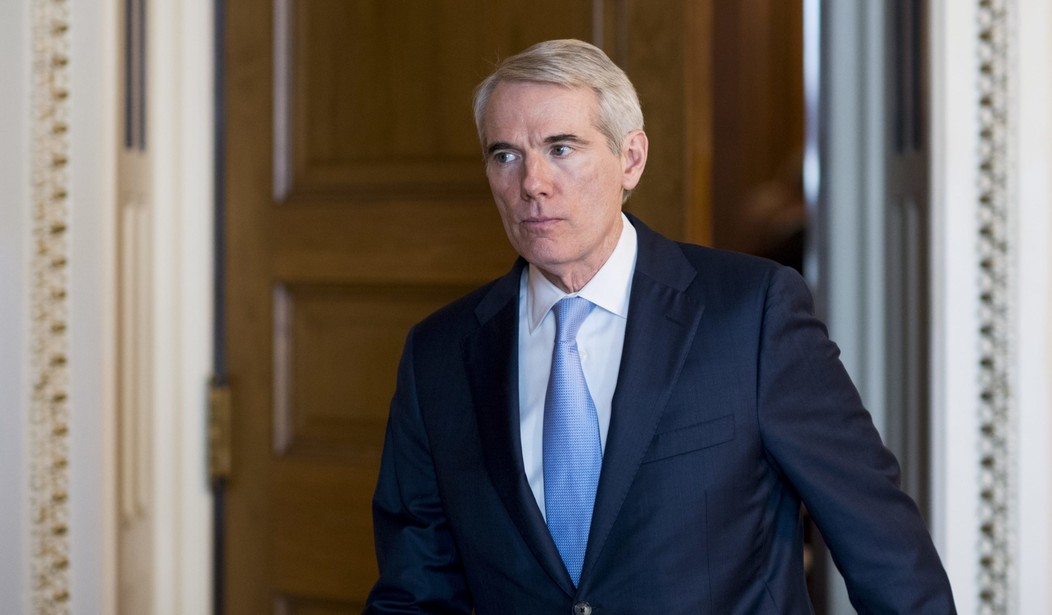WASHINGTON – States across the country have been grappling with insurance providers exiting Obamacare exchange programs, leaving some counties with one or no options for health insurance.
This week Sen. Rob. Portman (R-Ohio) blasted the status quo on healthcare as insurance provider Anthem announced its exit from exchanges in Ohio. Portman lamented skyrocketing premiums and declining healthcare choices under the landmark healthcare program.
“This is a problem not just in Ohio but across the country,” Portman said in a statement Tuesday. “Approximately one-third of the counties around the United States now only have one insurer, and more and more counties are seeing their last insurer leave just like those in Ohio.”
Anthem in a statement on the decision to pull out of the Ohio exchanges cited the volatility of individual markets, a lack of certainty for federal subsidies and a “lack of overall predictability” with the direction of healthcare policy.
One of the key elements to the American Health Care Act is the proposal to allow greater flexibility for insurance options at the state level. The Kaiser Family Foundation concluded in a brief this week that states would be hamstrung by tight funding, given the estimated $1 trillion in cuts for Medicaid and federal subsidies as proposed in the legislation.
The program calls for about $830 billion in cuts to Medicaid and $300 billion in cuts to tax credits for middle- and lower-class Americans. Sen. Chris Van Hollen (D-Md.) said on Tuesday in Washington that the House bill at its core has never been about healthcare but “wealth care,” citing the $600 billion in tax cuts proposed for the wealthy under the plan. Sen. Ed Markey (D-Mass.), speaking alongside Van Hollen, said that Republicans want to reduce social programs to “debt-soaked relics” of what they are today, while also characterizing ACHA as a massive tax cut for the wealthy.
“Nothing ticks off the wealthiest contributors to Donald Trump more than the idea that their taxes get spent on helping the poorest people with their problems,” Markey said.
Last month, the Department of Health & Human Services released a report showing that health insurance premiums in 39 states jumped 105 percent between 2013 and 2017. According to the report, 62 percent of states using ObamaCare saw average premiums double between 2013 and 2017. In one of the most dramatic examples, Alabama saw average monthly premiums jump 223 percent, from $178 to $575.
Grace-Marie Turner, president of the Galen Institute, a think tank focused on health and tax policy, said in an interview Monday that the report confirms the realities surrounding Obamacare.
“(The report) documented what most people have found over the last four years – that their premiums have been going up much more than the way that the Obama administration had calculated,” she said. “That has been the experience of people, and this really validated, when you look at it in a more objective way, the experience that millions of Americans have had over the last four years.”
Turner argued that the Washington, top-down approach to healthcare is flawed, in that insurance needs vary significantly from state to state. The Galen Institute has supported giving states control over policy options.
Another contentious issue with AHCA is the prospect that millions will lose their insurance with Obamacare’s demise. The Congressional Budget Office reported in May that the GOP’s proposal would shrink the federal deficit by $119 billion, but it would also result in 23 million Americans losing insurance. Turner said it will be key moving forward to provide a safety net for those left uninsured.
According to a Kaiser poll from May, the majority of Americans do not view AHCA as a viable replacement for Obamacare. The poll found that 55 percent of Americans have an unfavorable view of AHCA, though 67 percent of Republicans have a favorable view of the proposal.









Join the conversation as a VIP Member